
The Poulters are New Zealand’s biggest family-owned winemakers, as well as the largest supplier of bananas to supermarkets. They just bought top-end vineyard Sacred Hill – their first big brand. In all likelihood, you’ve never heard of them.
Sacred Hill’s new chief winemaker Nick Picone laughs when I say I’ve heard Steve Poulter, the Hawkes Bay vineyard’s super-low-profile new owner, works hard. Crazy hard.
“I’ve only been here five minutes, but what I can tell you is I haven’t met anyone as driven and hardworking as Steve. And I’ve worked for some pretty driven people,” Picone says. His bosses include, for many years, Villa Maria founder George Fistonich, definitely no slouch.
Oh, and while we are talking driven, Picone clocked up 10 (yes, 10) New Zealand Winemaker of the Year or Winemaker of the Show titles between 2011 and 2020. His new job puts him in charge of the future of some pretty classy wine brands – Riflemans Chardonnay ($70 a bottle), Deerstalkers Syrah ($60), and Helmsman cabernet sauvignon blend ($85).
No pressure.
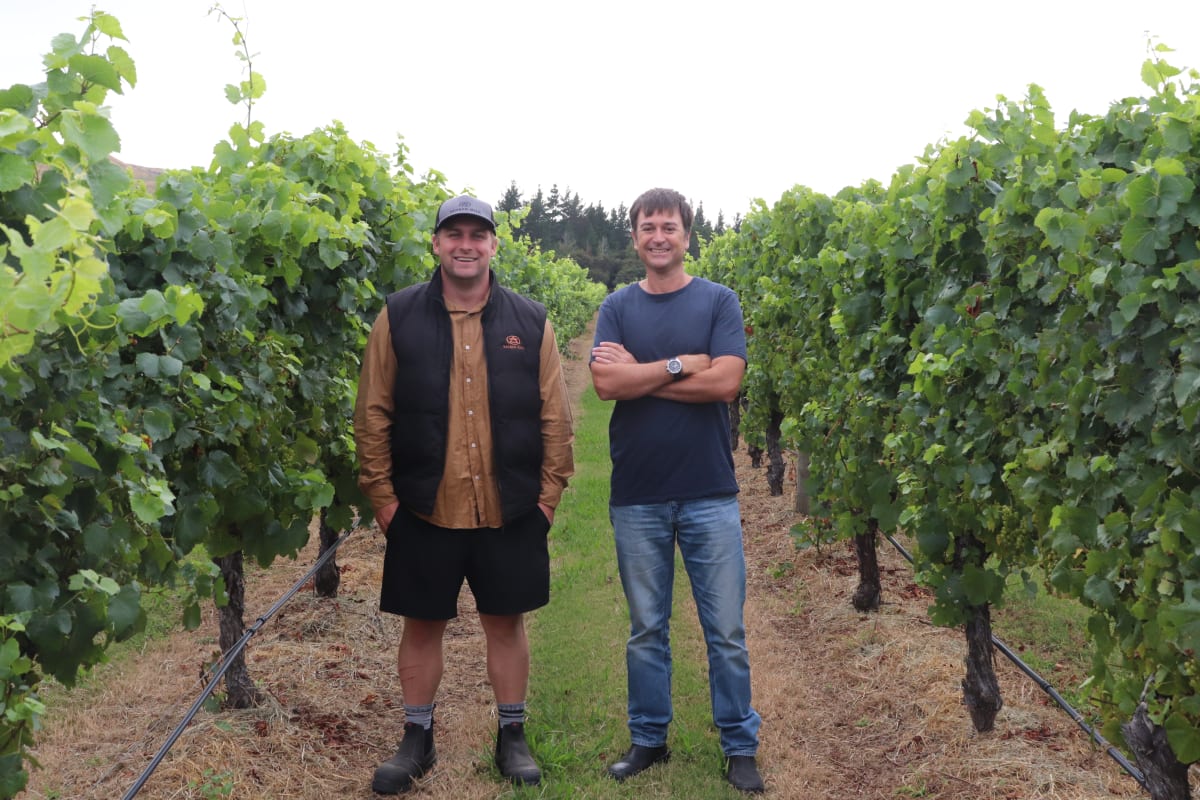
People in the know know Picone. But hardly anyone has heard of Steve Poulter, or the family business that bears his name and which over the last 30 years has become one of the biggest importer/exporters of fruit in the country, the biggest shipper and ripener of bananas for the Kiwi market, and a significant supplier (like, millions of litres a year) of bulk wine to supermarkets in New Zealand, the UK and Europe.
The “Makaraka” wine brand sold in Countdown - that’s Poulter. Also Duck Point, Goldridge Estate, and Tora Bay. Poulter has its own retail arm - wine2u, where you can buy various six-bottle mixed cases of Poulter wines sourced from New Zealand, Australia, South Africa or Chile for between $48 and $60. The volume Poulter handles allows the company to keep its prices down, Steve Poulter says.
The Freeman’s Bay-branded wine sold in Aldi supermarkets in the UK and Ireland is Poulter too, although Freeman's Bay grapes come from New Zealand. Poulter makes the wine and ships it over to the UK in bulk. A UK company bottles and labels it, and sends it to Aldi stores.
The Freeman’s Bay name came from a disastrous property investment Poulter made in that suburb in the 1980s, Steve Poulter says. “I'd never made any money out of Freeman’s Bay, so I thought maybe I can make it by selling a wine named after it.”
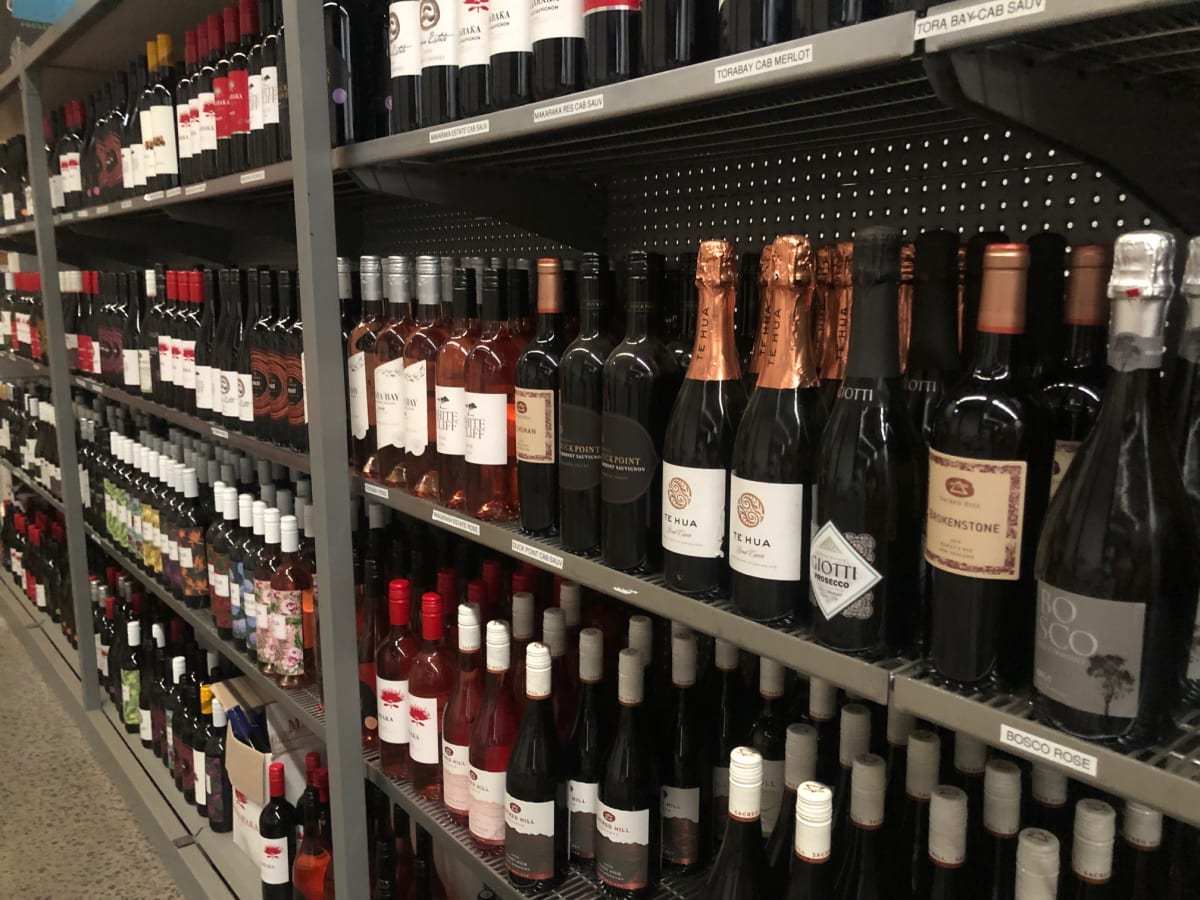
Poulter Group has offices in the UK and Australia. The website suggests a subsidiary in China and a branch in the US, although the company says this is not a priority.
How big is the company? I ask Steve.
“If we are really honest, I’d say we are reasonably large, but I would never want to report it. You know, we just do what we do.”
A family affair
If the company employs only 45 people, it’s likely because the family handles so much of the work themselves.
Steve’s wife Kerina manages the import/export side of the business, middle child Ben manages the Sacred Hill vineyards, and the youngest, Sam (who had completed school by 15 and spent two years living in China and learning the language before joining the business) looks after wine production and sales. The eldest, daughter Alexis has a law degree and a masters and handles the legal side of the business, plus global sales - and all the shipping.
“I got frustrated with freight forwarders and customs brokers acting so slowly and not doing things. And I was like ‘This cannot be that hard’, so I went and got a customs qualification. Now we just deal with the shipping lines direct, we do our own customs clearances, deal directly with MPI, we don’t use any freight forwarders.
“It’s quicker, less costly and we have more control.”
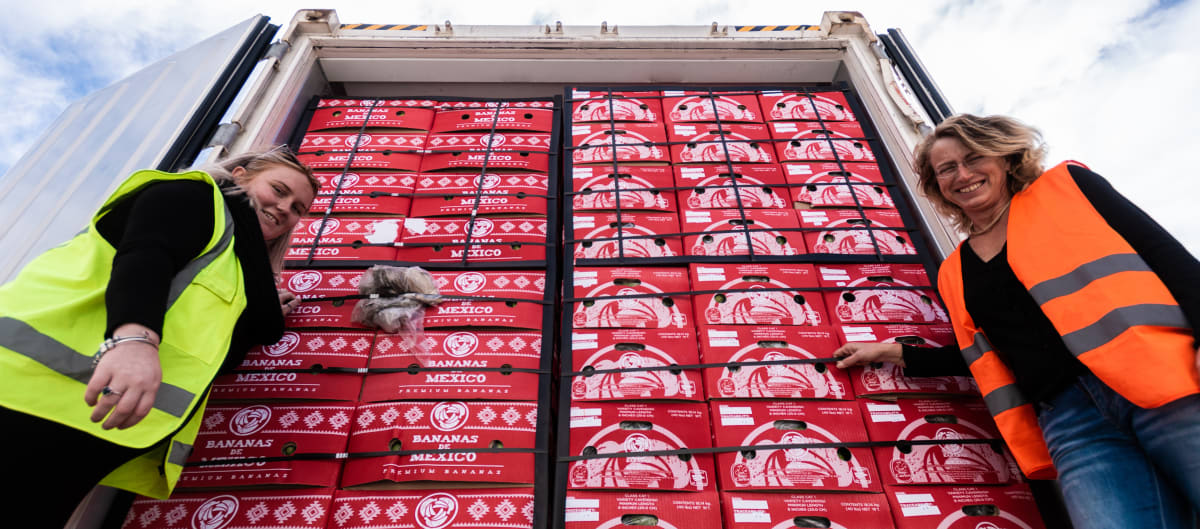
That strategy has also meant Poulter mostly avoided the Covid-related shipping and supply chain chaos that has beset so many importers and exports.
“We have a really strong relationship with one of the main shipping lines, Mersk. All the things you read about haven’t really happened to us.”
Steve Poulter describes himself on the company website as owner and director of the business.
“However you will be sure to find him working all day Saturday and Sunday on machinery, maintaining the facility, or doing the daily produce orders.”
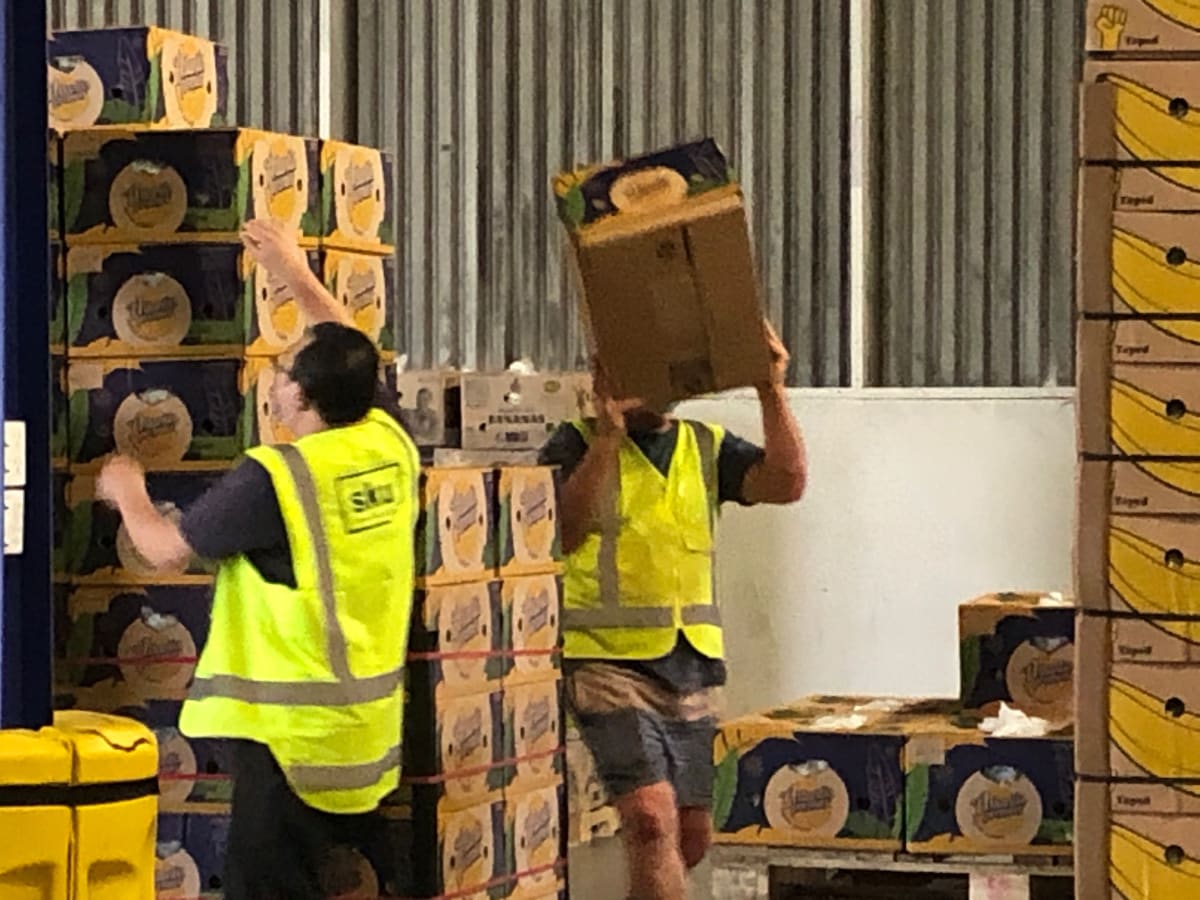
'I didn't really like cows'
Poulter reckons he started helping out on his family’s dairy farm pretty much as soon as he could walk. But as he got older it was his dad’s sideline in grape growing which appealed. “To be honest, I didn’t really like cows that much.”
He left school, worked for winemakers Montana, then spent a few seasons in South Africa and Switzerland, where winemakers were still pressing some red grape varieties with their feet. He met his wife Kerina in London, brought her back to New Zealand and started working for Challenge Horticulture - a branch of what is now the Fletcher building empire but which back then had a big presence in fruit, particularly kiwifruit.
After a while, the move to the Zespri single desk kiwifruit marketing system took Fletchers out of fruit. The Poulters and a couple of Challenge colleagues started a produce business, and Steve and Kerina sold fruit at the Auckland markets at weekends to supplement their income. Times were tough, but they ended up with their own business, supplying fruit and later wine direct to supermarkets.
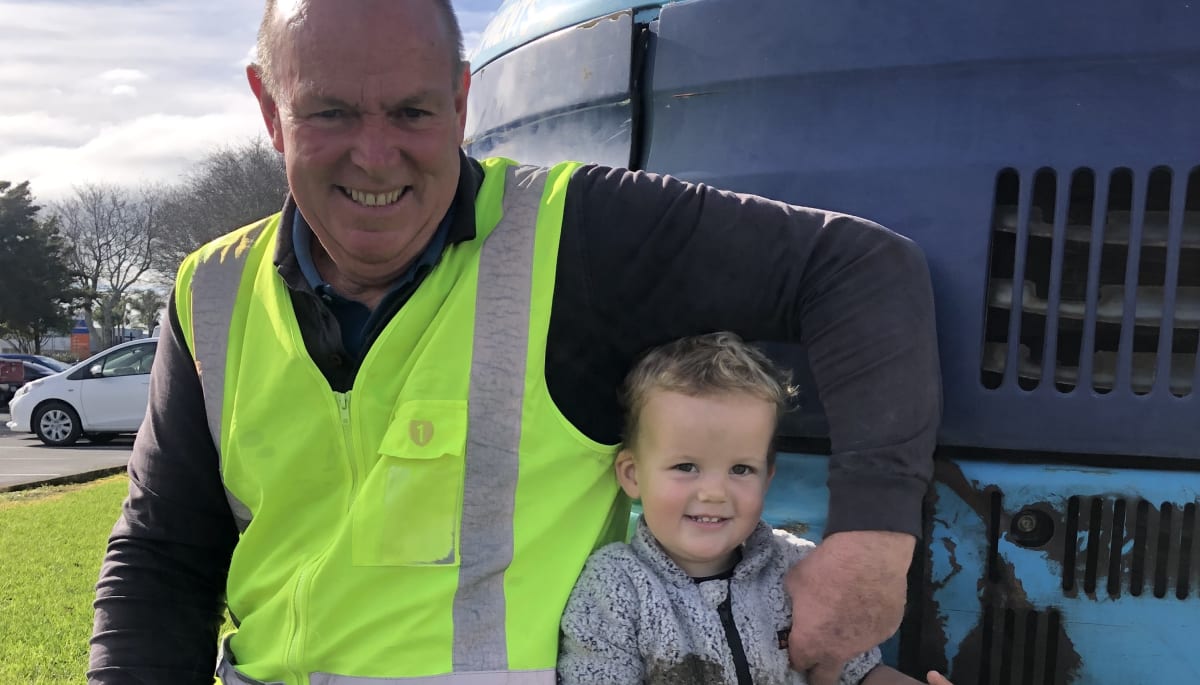
“It’s quite a funny story,” Steve says. “I was dealing with this grower in Gisborne and he said to me ‘I’ve got some grapes. What shall I do with them?’ and I said ‘I’ll sell them.’ So I went along to Countdown, and I was quite friendly with all the produce guys and I said ‘I need to speak to your wine buyer.’
“So anyway, I meet the head of wine and I say ‘I’ve got some grapes I want to sell you’. And he says ‘What’s your brand?’ and I said I hadn’t got a brand and he said ‘Well how are we going to do this?’ And I said ‘I’ll put them in a bottle and you make a label and I’ll give them to you.’ And that was the beginning of what we still do today.”
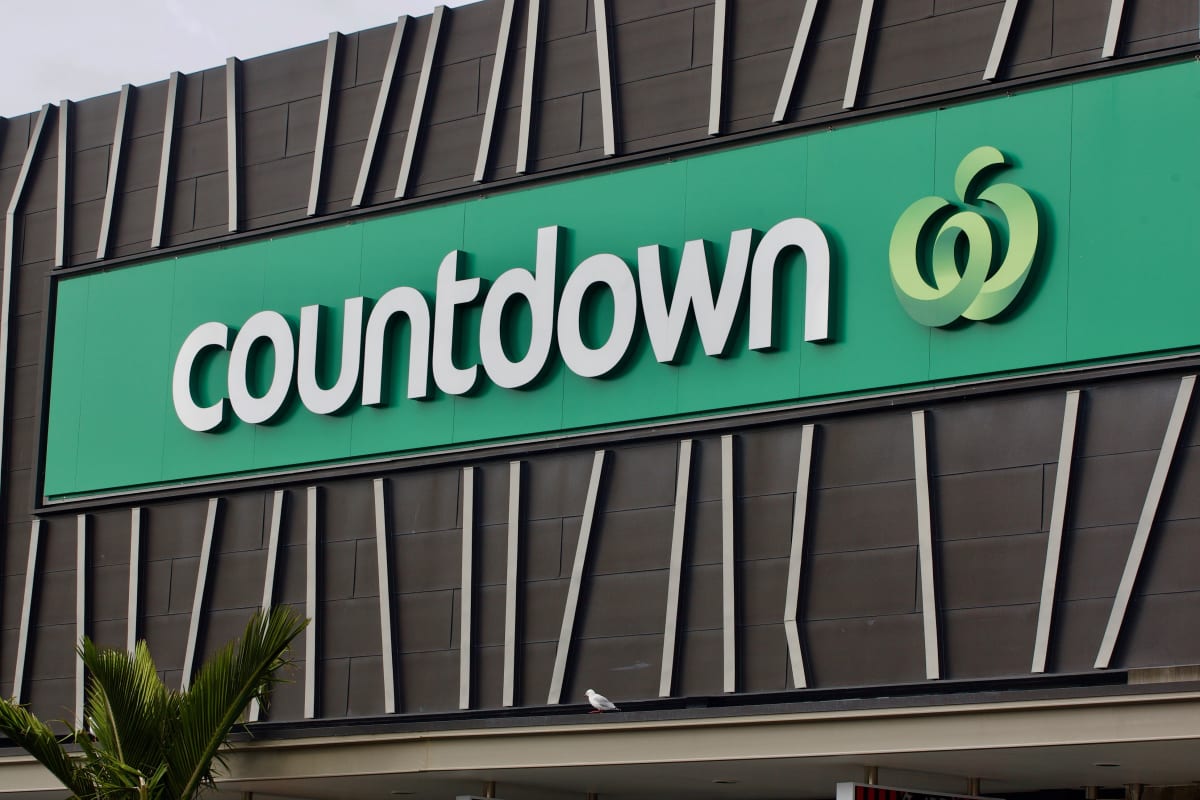
Poulter spins a good yarn. He's self-deprecating in a very Kiwi way, but with a touch of derring do. Like the story of how he got into the UK market.
“The same Gisborne grower said to me ‘I’ve got too many grapes for Countdown’ and I said ‘I know you have’, and he said to me ‘Can you sell them offshore?’ And I said ‘Of course I can’.”
“So I went to England and I got off the plane and I went straight to the head office of [discount supermarket chain] Aldi, and they don’t even have a New Zealand wine offering - nothing. And I was dressed a bit differently to them - they were all in suits and ties. And I said ‘Can I meet the wine buyer?’ and the lady said to me ‘Where are you from?’ And I say ‘I’ve just flown in from New Zealand.’
“And so I sat there with the wine buyer, and he started to come round and he was quite interested. And he said to me ‘What can you do?’ and I said ‘Well what do you want?’ And he said, ‘Well I want some sauvignon blancs.’ And I said ‘OK, I’ll send them to you.’
“I think through life, you build up good relationships with people and you just keep working along with them. And I think that’s been key for us as a family." – Steve Poulter, Poulter Group
“And now we supply that guy with millions of litres of sauvignon blanc and millions of pinot gris. And I still deal with him, although now he’s what’s called a ‘global head’ at Aldi.”
Just like Steve still deals with the guy who used to be the wine buyer at Countdown, and with his old mate in Gisborne.
“I think through life, you build up good relationships with people and you just keep working along with them. And I think that’s been key for us as a family - we’ve developed a relationship type deal.”
A business that's not for sale
Families - that’s something that’s super-important for Poulter and his business. Aldi may be a $US100 billion company, but it’s an empire founded by two German brothers, who took over their mother's grocery business after WWII - and it's still owned by their families. A lot of the banana growers Poulter deals with in Ecuador and Mexico are family businesses, he says, and in New Zealand, Poulter Group might employ five or six members of the same Tongan families.
At his daughter Alexis’ wedding, a big proportion of the guests were staff members and their whānau; one Mexican banana supplier brought all his family.
Family businesses have always been a big part of New Zealand history - particularly in the horticulture sector, but that’s changing, Steve says.
“I get really disappointed at New Zealand families selling - taking the corporate dollar. I see such good family businesses where they are selling up - taking big dollars. And that’s great for them, but it’s not great for New Zealand.
“I get people knock on the door and they sit on the other side of the table we’re at now and I say ‘No, I’ve got a family and we’re sustainable, and we’re doing an okay job. Why would we sell?”
Steve’s son Sam calls it an “all hands on deck” kind of company. The website shows pictures of his brother Ben pushing an industrial scale concrete polisher at the company’s banana ripening facility - the biggest in the country.
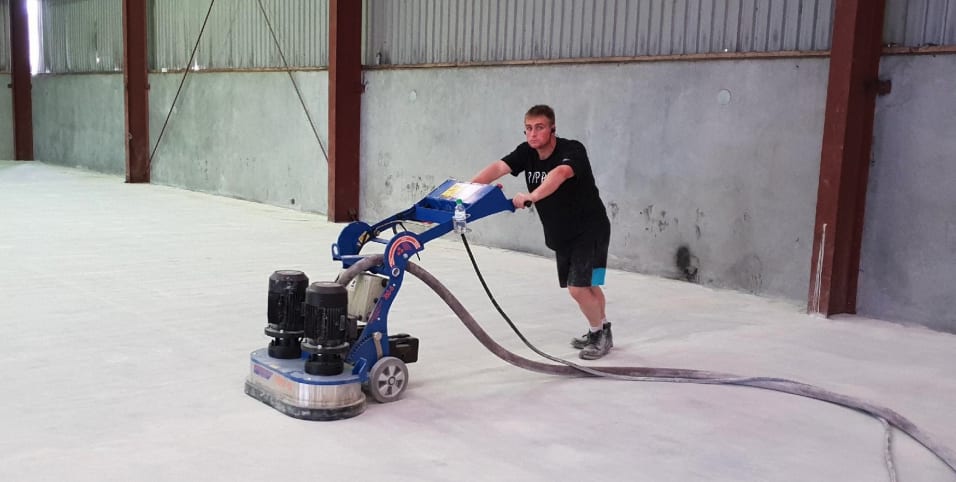
Another company might contract out that job.
“I don’t care when I work. Those guys have seen me work all night,” Steve says - the "guys" being his children. “I’ve got a job that needs to be done - let’s just get it done. And what we can achieve out of getting it done means we’re better than the next guy - we are all the time trying to achieve a better result.”
And the rest of the family?
“Steve is pretty crazy - he definitely works a lot harder than the rest of us,” Sam Poulter says. “But yeah, it’s a family business and as a family, it’s easier because you’re working towards something you’re really passionate about, as opposed to when you are working for someone else.”
"I just never stopped working"
Sam always intended to go to university when he came back from his two years in China, but somehow it didn’t work out that way.
“I came back into the country and it was our busiest period, so I was helping out with wrapping wine and merchandising, and then we were growing really quickly and we got really busy and I just never stopped working.”
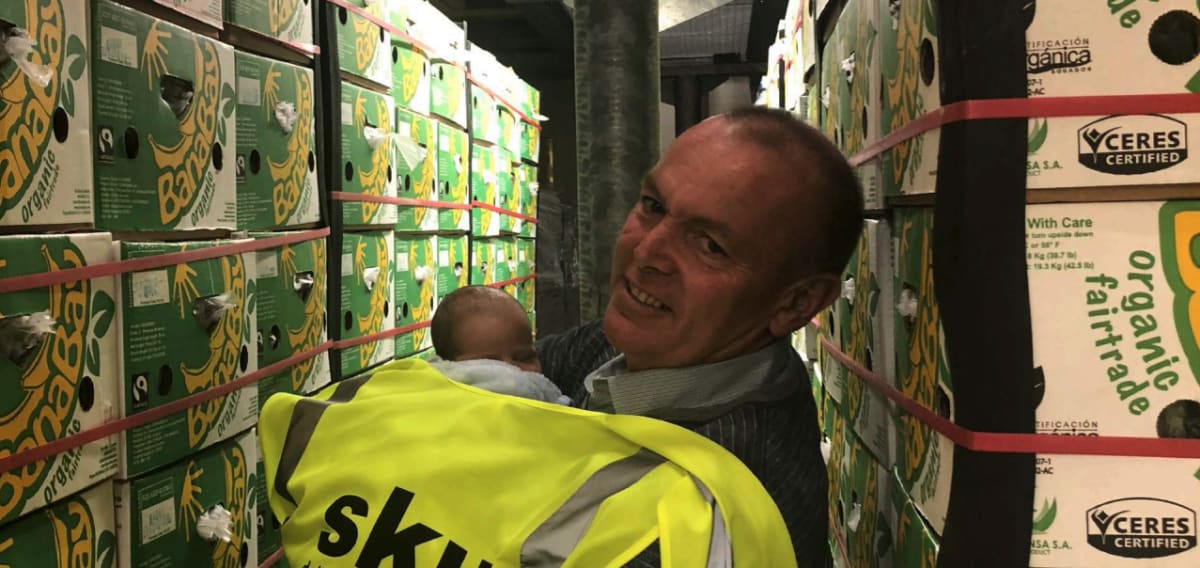
Family and work, they are kind of intermingled. Sacred, and until now, secret.
Google search ‘Poulter’ and you are way more likely to get a story about surfing (the younger members are competitive surfers and Steve was president of Surfing NZ for a while) than about the company they run.
That’s just how he has always liked it, Steve says. Keeping his head down.
So what’s changed?
Sacred Hill, he says.
“All my life I’ve said ‘Just do your job well, look after the people who are supplying you, look after your customers, why do you need to be advertising?
“But we had a gentleman come and give us some advice as a family. And he said in the wine business people need to know a bit more about you, so you can extend your business. He said you need some profile. I said ‘No no no.’ He said 'You’ve got to get it’.’
After the meeting, Poulter said he started to wonder if the consultant might be right. People buying an $85 bottle of wine might want to know something about the company selling that wine, Poulter thought, and grape growers were increasingly discerning about where their grapes were ending up.
This Newsroom interview is the first time Steve Poulter and his family have talked to media.
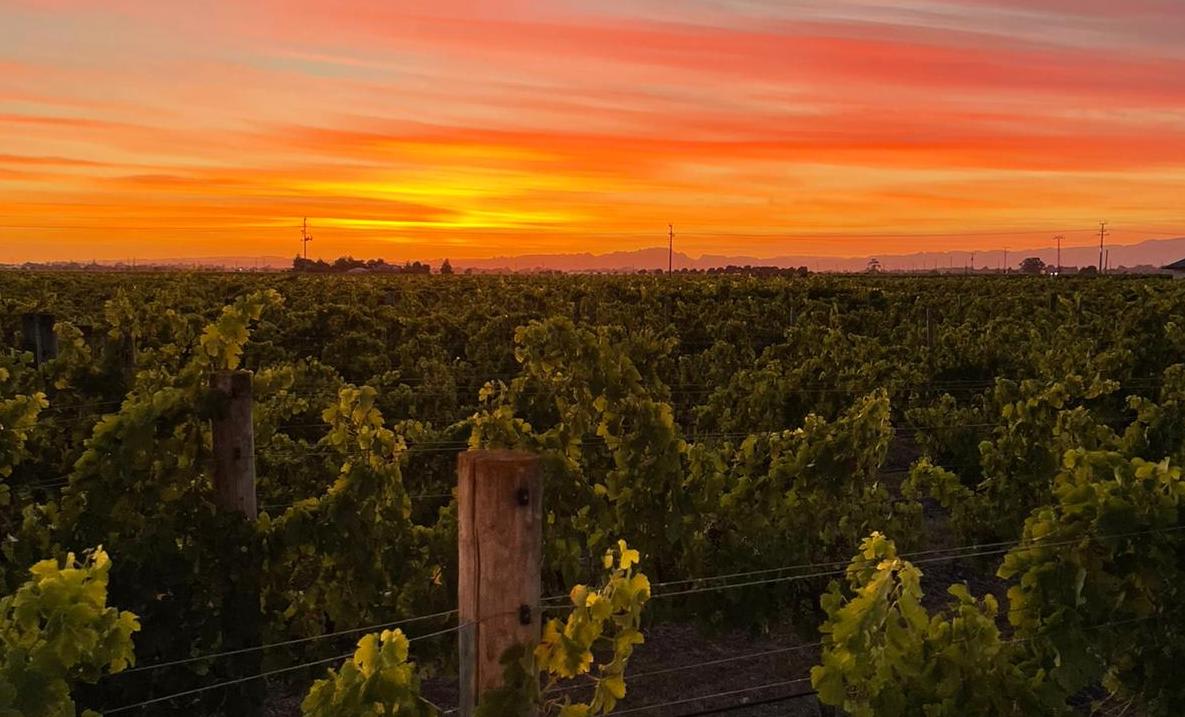
The Sacred Hill receivership
Sacred Hill is another family business, launched in 1986 by brothers David and Mark Mason after their father Ian became one of the first Hawkes Bay farmers to diversify into grapevines.
The Sacred Hill group was put into receivership by Westpac Bank in May last year, with debts reported to be over $50 million. Majority owner David Mason tried unsuccessfully to stop the receivership sale, and the company’s Marlborough vineyard was sold in July to contract winemaker VinLink Marlborough. NBR reported Sacred Hill’s Marlborough business fetched $43 million.
Poulter Group subsidiary started negotiating for the Hawkes Bay winery a few months later, with the receiver noting that other Sacred Hill entities, including the Hawkes Bay business, fetching over $6 million.
Sacred Hill staff kept mum to reporters about who the new owners were – until now.
Steve Poulter sees buying Sacred Hill as a progression, not a new path for his company. “I’m not letting go of the bulk wine business because, to be honest, it’s probably where we will make the money, but I see this as a way we can do better right across the board."
"Do I want profile? Not really. Do I need all this additional work? Probably no. But I enjoy it. We can’t just sit still.” – Steve Poulter
“With our bananas, we are trying to be the best. With our new facility we’ve got the newest gear and we can ripen the best bananas.
“When I look at the wine business, I can’t say we’re the best, all I can say is we sell a lot of wine, and that’s great, but we aren’t the best.”
The appointment of Nick Picone, one of the country’s most prestigious winemakers, is key, Steve Poulter says.
"We can grow to be one of the top wine companies in New Zealand. And when I say ‘top’, I mean best quality, best price, best across the board.
"Do I want profile? Not really. Do I need all this additional work? Probably no. But I enjoy it because I like to achieve and keep targeting for better product, whether it be bananas or whether it be wine. I want to be doing a better job.
“We can’t just sit still, you know.”
Meaning, perhaps, Steve Poulter can’t sit still.







